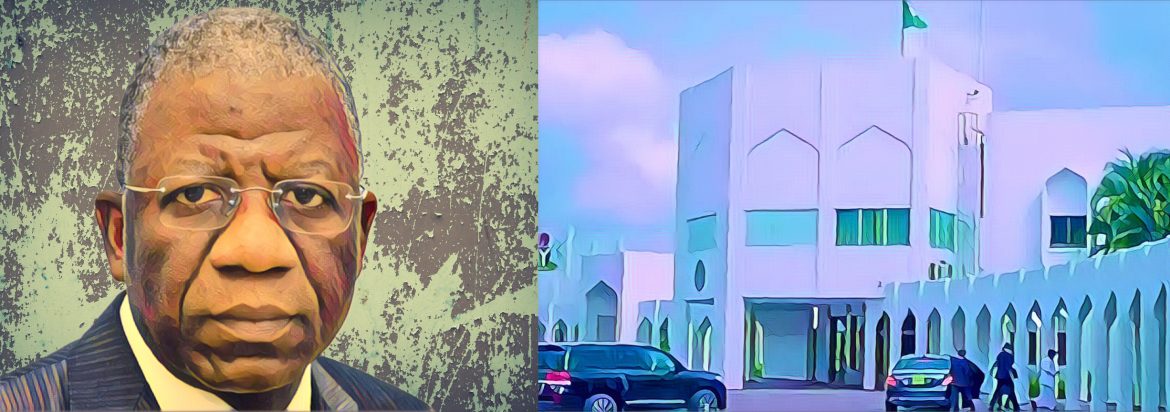The recent directive by President Bola Ahmed Tinubu’s administration to implement the long-stalled report of the Presidential Committee on Restructuring and Rationalisation of Federal Government Parastatals, Commissions, and Agencies—commonly known as the Oronsaye Report—has reignited discussions on the effectiveness and efficiency of Nigeria’s public sector. However, the ambitious 12-week deadline set by the Federal Executive Council (FEC) for its implementation has been met with skepticism from various stakeholders. This skepticism is compounded by the National Assembly’s continued expansion of the public sector through the creation of additional agencies and commissions, seemingly in contradiction to the report’s recommendations.
The Oronsaye Report, initiated during President Goodluck Jonathan’s tenure in 2011 and led by former Head of the Civil Service of the Federation, Steve Oronsaye, was envisioned as a blueprint for streamlining the Nigerian civil service. Its primary goals were to enhance efficiency, reduce governmental expenditure, and eliminate redundancy within federal government agencies. Despite its comprehensive proposals, including the merger, consolidation, or abolition of certain parastatals and agencies, the report has languished for over a decade without full implementation.
The implications of this delay are profound. Not only has the number of Federal Government Ministries, Departments, and Agencies (MDAs) ballooned to over 900, but the inefficiencies and duplications the report aimed to address have only become more entrenched. This expansion contradicts the report’s objective to rationalize government operations and reduce the cost of governance, a critical issue in a country grappling with economic challenges and striving for sustainable development.
The proposed implementation under President Tinubu’s leadership is a step towards addressing these challenges. However, the approach and timing raise several questions. The decision to proceed without extensive consultations with the National Assembly, which has constitutional and legislative oversight over many of these agencies, suggests a potential oversight. Such a unilateral approach risks legal and governance complications, particularly for agencies established or mandated by the constitution or specific legislative acts.
Furthermore, the rapid timeline for implementation does not seem to allow for the necessary legislative and procedural reviews to ensure that any changes are legally sound and practically viable. This haste could inadvertently result in disruptions that might affect service delivery and the livelihoods of thousands of civil servants.
Stakeholders, including civil society organizations and labor unions, have voiced concerns over the potential impact on jobs and the delivery of public services. While the reduction in the cost of governance is a commendable goal, the human and social implications of such a drastic overhaul need careful consideration and planning. The concerns extend beyond mere economic considerations to the fundamental structure and functionality of Nigeria’s federal system.
Critics argue that the Oronsaye Report, though necessary, is insufficient to address the broader systemic issues plaguing Nigeria’s governance model. They call for a more holistic approach that goes beyond cost-cutting measures to address underlying issues such as ethnic tensions, governance inclusivity, and the distribution of resources and opportunities. The suggestion to reduce the size of the federal cabinet and consider more fundamental reforms, such as transitioning to a unicameral legislature, reflects a deeper desire for a thorough reevaluation of Nigeria’s governance structures.
The implementation of the Oronsaye Report, if pursued in a thoughtful, inclusive, and legally sound manner, has the potential to significantly improve Nigeria’s public sector efficiency and reduce governmental expenditure. However, it is clear that this process must be part of a larger dialogue on reforming the country’s governance model. This dialogue should aim at achieving a more equitable, efficient, and responsive government capable of meeting the needs of its citizens and positioning Nigeria for sustainable development.
While the effort to implement the Oronsaye Report is a positive step towards addressing the bloated structure of Nigeria’s public sector, it must be undertaken with caution, thorough planning, and broad consultation. The challenges facing Nigeria are complex and multifaceted, requiring solutions that go beyond administrative restructuring to address the foundational issues of governance, inclusivity, and national unity. As Nigeria stands at a crossroads, the decisions made today will have lasting impacts on the nation’s trajectory towards prosperity and stability.
Source: The Guardian


